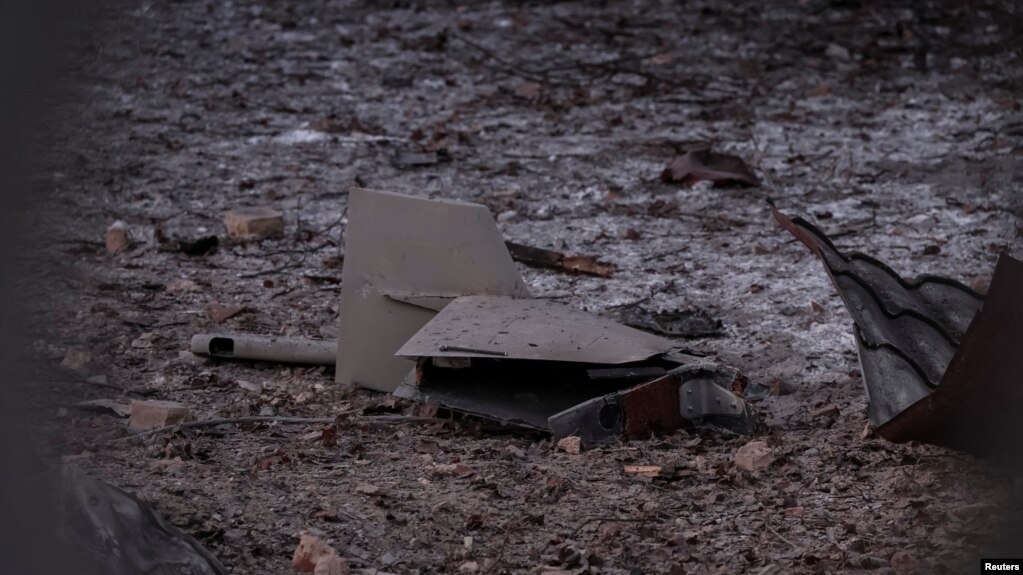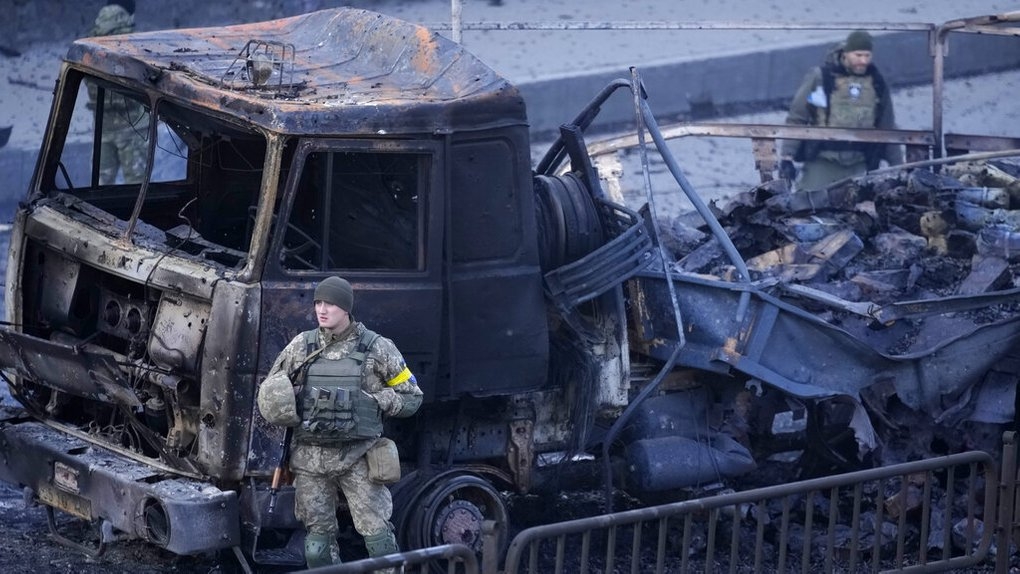Russian forces have once again used unmanned drones to stage an aerial assault on Ukraine’s capital city, Kyiv, marking the eleventh such strike this month, according to a statement from the city’s military administration on Saturday. The repeated attacks, often under the cover of darkness, appear to be a strategic move aimed not only at depleting Ukraine’s air defense resources but also at creating psychological stress among the city’s civilian population.
“The enemy is doing its utmost to strike key targets in Kyiv city and simultaneously deplete our air defense resources,” the local military stated. “Russians are aiming at putting the civilian population under deep psychological stress. That is why they attack Kyiv from the air almost daily.”
As the conflict continues, the constant threat of aerial attacks has become a grim reality for the residents of Kyiv. The city’s air raid alarm system has been silent for only four days in May, underscoring the frequency and intensity of Russia’s drone attacks.
Early Tuesday morning, Kyiv came under similar assault. Russia claimed to have destroyed a US-made Patriot air defense system during this attack, a claim that Ukrainian officials vehemently deny. According to the Ukrainian military, all 18 Russian missiles launched that day were intercepted and successfully destroyed.

During the latest offensive, Russia reportedly deployed “20 Shahed drones, as well as a Merlin reconnaissance UAV”. However, the Central Command of the Air Force was able to identify and eliminate all these threats, ensuring that there were no casualties or significant infrastructure damage, the military statement reported.
Although the ongoing drone attacks have not resulted in major infrastructural damage or loss of life, the psychological toll on the population is profound. The fear of aerial strikes can lead to displacement, disrupt daily life, and create an atmosphere of sustained fear and anxiety. It’s a form of psychological warfare that adds another layer to the physical conflict, affecting not just the military but also civilians in a deeply personal way.
This continuous aggression from Russia, utilizing aerial warfare, signifies an escalation in the conflict, prompting the international community to respond with increased urgency. The G7’s recent pledge to support Ukraine “for as long as it takes” reflects growing global concern and a heightened resolve to counter Russia’s continued aggression.
The daily threat faced by Kyiv and its inhabitants highlights the perilous state of affairs in Ukraine. Despite the mounting international pressure on Russia and the steadfastness of Ukraine’s defense forces, the situation remains precarious. The Ukrainian people, while bearing the brunt of this psychological warfare, show remarkable resilience, continually adapting to the ever-changing conditions of this conflict.
As the sun rises on another day in Kyiv, the international community’s focus sharpens on Ukraine. The world watches, waits, and lends its voice in solidarity with Ukraine, hoping for an end to the aggression and a peaceful resolution to the crisis.
©world-news.biz
